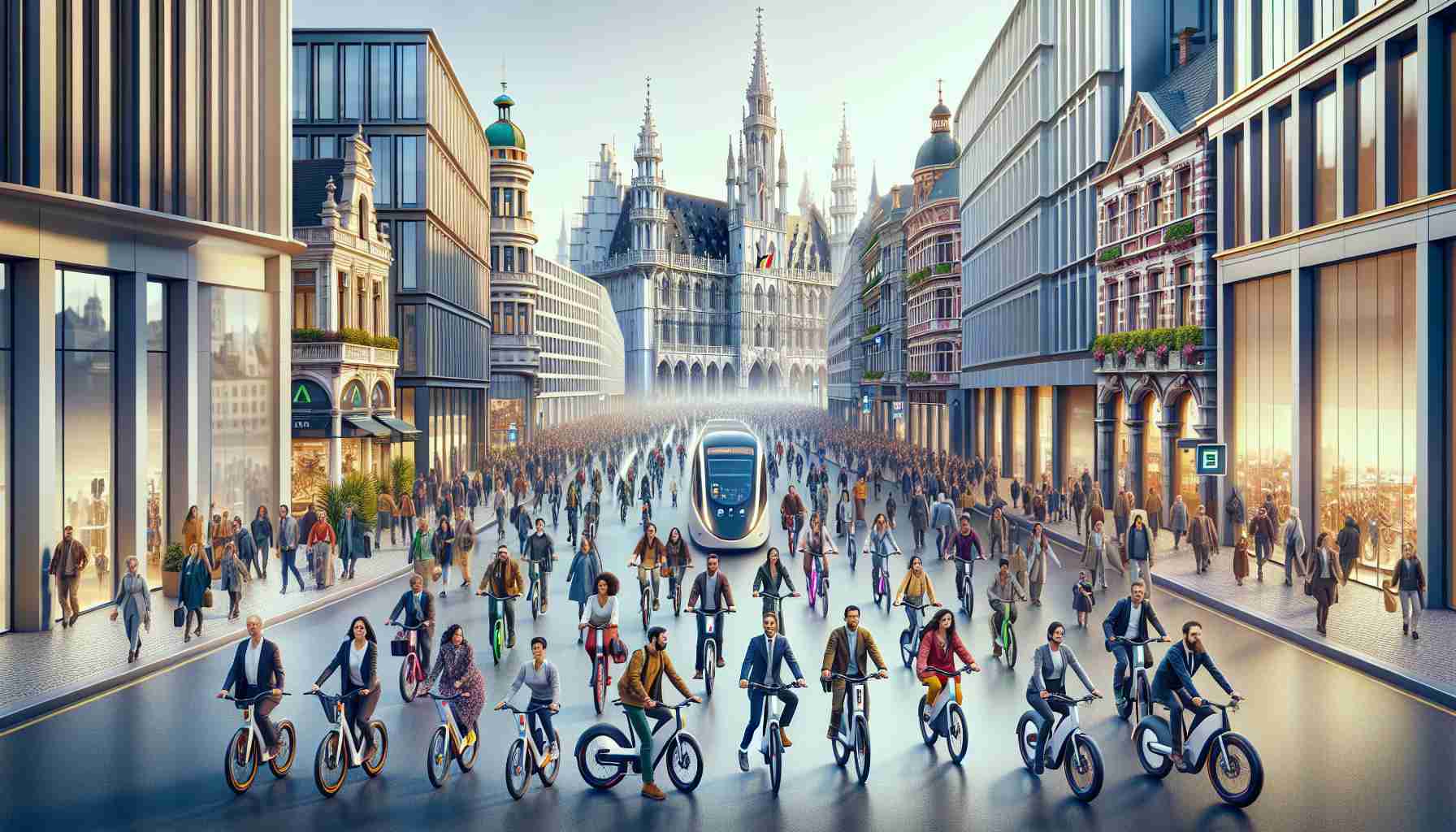European Bike Industry’s Vision for 2030: Revolutionizing Urban Transport
Europe’s bike industry leaders are pioneering a new era of urban mobility through their forward-thinking manifesto presented to the European Commission. While the focus remains on the “European Declaration on Cycling,” there is a call for even bolder steps to be taken.
Shifting the Gear Towards Sustainability
Apart from emphasizing production relocation and industry support, the industry seeks reliable tools to track market growth, impact assessments, and economic outcomes of electric bike manufacturing. Surprisingly, Eurostat’s data lacks comprehensive information on the bicycle sector, highlighting the need for more accurate measurements.
Empowering European Production and Market Protection
The industry advocates for enhanced support for reindustrialization and potentially implementing additional safeguards for the European market. With a current investment of €2 billion, increased backing for production relocalization could significantly amplify the industry’s influence, benefiting not only bike manufacturers but also related businesses.
Europe’s Dominance in Electric Bike Production
The shift towards a more sustainable future is evident as Europe now manufactures 98% of the electric bikes sold within its borders, with a notable vulnerability lying in battery and motor production. Decathlon France’s sustainability lead emphasizes the need for protective measures to secure Europe’s production and ensure sovereignty over critical components.
Commission’s Commitment to Sustainable Innovation
While the European Commission prioritizes sustainable innovation, including an emphasis on cycling, discussions around commercial defense policies are approached cautiously. The Commission’s stance on fair competition over protectionism sets the tone for future collaborations with industry stakeholders.
In anticipation of the Urban Mobility Day in autumn 2025, where the updated policies of the “European Declaration on Cycling” will be launched, the path towards a greener, more bike-centric urban landscape continues to evolve.
Boosting Electric Bike Adoption: Key Questions and Insights
With the rapid growth of electric bikes reshaping Europe’s urban mobility landscape, several pivotal questions arise, shedding light on crucial aspects of this transformation.
1. How are European cities adapting to the surge in electric bike usage?
– European cities are increasingly investing in infrastructure tailored to electric bike riders, such as dedicated bike lanes and charging stations. Initiatives promoting cycling as a sustainable mode of transport are gaining traction, encouraging more individuals to switch to electric bikes for their daily commute.
2. What are the main challenges faced in the widespread adoption of electric bikes?
– One of the primary challenges is the high initial cost associated with purchasing an electric bike, which can deter potential users. Addressing concerns regarding battery disposal and charging infrastructure availability in rural areas also poses challenges that need to be tackled to ensure widespread adoption.
3. What are the environmental advantages of electric bikes over traditional modes of transport?
– Electric bikes offer significant environmental benefits by reducing greenhouse gas emissions and air pollution compared to cars and motorcycles. Their use contributes to combating climate change and improving air quality in urban areas, making them a sustainable alternative for short to medium-length trips.
4. How do electric bikes contribute to alleviating traffic congestion in European cities?
– Electric bikes play a crucial role in reducing traffic congestion by providing a fast and efficient mode of transportation for short distances. By encouraging the shift from cars to electric bikes, cities can experience reduced traffic volumes and decreased reliance on fossil fuel-powered vehicles, leading to smoother traffic flow and lower emissions.
5. What are the advantages and disadvantages of promoting electric bike production in Europe?
– Advantages: Promoting electric bike production within Europe bolsters the local economy, creating job opportunities and fostering innovation in sustainable transportation. It reduces dependency on imports and strengthens the region’s manufacturing sector.
– Disadvantages: Challenges may arise in terms of competition with lower-cost producers outside Europe and balancing the environmental impact of manufacturing processes. Ensuring a balance between economic growth and environmental sustainability remains a pertinent issue in promoting local production.
In navigating the transition towards a more bike-centric urban mobility model, addressing these questions and challenges is imperative. Stay informed about the latest developments in Europe’s electric bike industry to contribute to the ongoing evolution of sustainable urban transport.
For further insights on electric bike trends and initiatives in Europe, visit European Commission.







